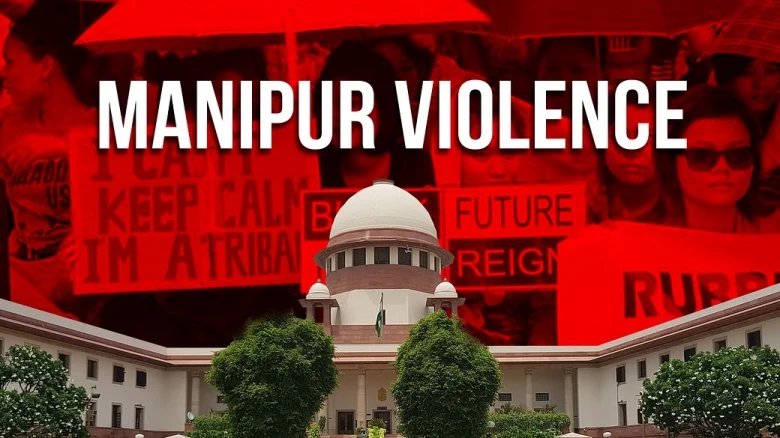The order was made by a bench led by Chief Justice of India DY Chandrachud to request an independent probe into the situation.
Digital Desk: The
Manipur Director General of Police (DGP) has been directed by the Supreme Court to be personally present at the next hearing, which is scheduled for Monday, August 7, at 2 pm.
On the specified date, the court will hear the petitions about the current ethnic conflict in Manipur.
The Court’s order said, “Based on the preliminary data, it prima facie appears that investigation has been tardy with a considerable lapse between occurrence and the registration of the FIR, recording of witness statements and arrests have been few and far between. In order to help the Court to determine the nature of the investigation, we direct the DGP Manipur to be personally present in Supreme Court to aid the Court.”
The supreme court also voiced opposition to the creation of a group of retired judges to review allegations and cases.
The Solicitor General was then ordered to follow directions regarding who should investigate the cases.
In addition to this, the Supreme Court discovered that the FIR for the horrifying physical assault case in which two women were stripped naked in the state was registered with a significant delay.
A complete breakdown of the law and order apparatus resulted, according to the highest court, because the Manipur Police were unable to investigate crimes committed throughout the state, particularly sexual offences against women.
"State police is incapable of investigation. Absolutely.. Law and order are completely gone. The investigation is moving so slowly. No one was arrested. Statements made after such a period has passed. This suggests that there was no legislation and that the constitutional machinery was broken. Perhaps it is true that no arrests could be made since police were unable to reach the area, but even in that case, there was a total collapse of law and order," CJI DY Chandrachud stated.

Leave A Comment